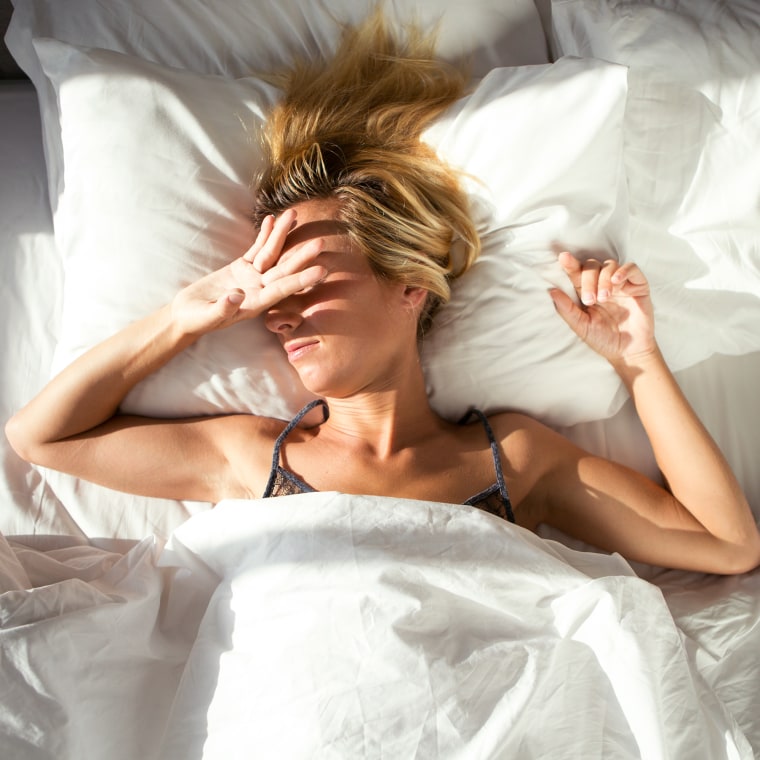As a personal trainer and weight-loss coach, I am constantly answering health and fitness questions from my clients, on social media and in our Start TODAY Facebook group. In this column, I address some of the most common questions and roadblocks that trip people up on their journey to establish a health and fitness routine.
Should I wake up early to exercise or skip it and sleep longer?
One of my new clients told me that she was forcing herself to wake up at 5 a.m., exhausted, to fit in a workout. She came to me wanting to lose 10 pounds and feel more energetic during the day but had a hard time scheduling in workouts since she works 12-hour shifts four days a week.
As a holistic weight loss coach, I look at the entire person and their habits, lifestyle, work life and social commitments to design an exercise routine that works for them. And factoring in sleep is an important part of that.
My client isn’t alone in sacrificing sleep to squeeze in a workout. It can be a hard decision to make. We know how important both sleep and exercise are for our energy levels, physical fitness and overall health. So when you have to choose, which one should we prioritize?
A morning fitness routine can be an amazing habit. It gets your workout done first thing, which decreases the chances that you’ll get too busy and skip it later on. Plus, it can boost your energy and put you in a better mood for the day ahead. I also find that when my clients start their day with a healthy choice they are more likely to make more healthy choices, like eating nutritious foods and moving more the rest of the day. So if you are consistently getting enough sleep, establishing a morning workout routine can be a great goal.
But, that doesn’t mean I recommend morning workouts for everyone. There are certain circumstances where sleeping trumps getting up early to exercise.
Not currently working out? Make that a habit first.
First of all, if you’re not a morning person and are also new to exercise, I don’t recommend that you force yourself to get up early for a workout. In this case you are overcoming two hurdles:
- Waking up early when you’re not a morning person
- Getting yourself to exercise when it’s not currently a habit
I encourage people to focus on overcoming one hurdle at a time to increase the chances they stick with it. In this case, start with making exercise a habit by doing short workouts after work, taking a walk after dinner or spending time on the weekends doing something active. Once you’ve made fitness a more regular part of your routine, you can revisit giving morning workouts a try.
Sleep-deprived? Focus on getting your seven hours.
Getting adequate sleep plays a huge role in our overall health. Not getting enough can cause weight gain or make it hard to lose weight if that’s your goal. Sleep deprivation also affects our eating habits and makes it more likely we will reach for sugary foods to propel us through the day. Plus, your workouts just won’t be as effective when you’re dragging. All this is to say that cutting out the sleep we need in order to exercise may do more harm than good when it comes to your health goals.
So if you’re not currently getting 7-8 hours of sleep at night, make that the priority first.
Stressed out? Skip the morning workout.
Many of my clients are career-women leading hectic lives juggling their family and busy social calendars. This chronic stress causes elevated cortisol levels, which often means weight gain or stagnant weight loss. I also find that these women tend to have a hard time unwinding at night and don't fall asleep until late. In order to help reduce cortisol, our bodies need rest. So, we need to make getting those seven hours of uninterrupted, deep sleep, a priority.
Yes, exercise helps combat stress. But forcing yourself out of bed to do a HIIT routine won’t do you any favors when you’re going through a particularly stressful period. Instead, hit snooze and find a time to be active during the day that does not impact those crucial hours of sleep. I encourage my high-stress clients to choose gentle, relaxing forms of exercise like walking, yoga and stretching, which are also all great ways to wind down before bed.
Bottom line: Prioritize sleep and squeeze in movement where you can.
It’s OK to allow exercise to take a backseat while you focus on improving your sleep quality and quantity. But that doesn’t mean you can’t or shouldn’t exercise at all. After all, exercise helps you sleep better so it will aid in your goal of getting enough quality sleep.
I encourage my clients to broaden their definition of “workout.” You may not have time every day to hit the gym for a 30-minute session, but there is plenty of opportunity to move more throughout the day and this counts as exercise, too!
Try fitting in a 5- or 10-minute workout in the middle of your day or when you get home from work. It can even be something as simple as light stretching or yoga. Ask a colleague if you can make your meeting a walking meeting or take 10 minutes of your lunch break to take a walk around the block. Even simple choices like parking further from the store or taking the stairs to your office instead of the elevator can make a difference. All of these small spurts of activity really add up over the course of the day, which means you can hit snooze and still get your movement in.
More of your questions, answered!
- I hold weight in my midsection. Can I spot reduce belly fat?
- Does it matter how many calories I burn during a workout?

